Keywords: A Man On The Inside
There are more than 200 results, only the first 200 are displayed here.
-
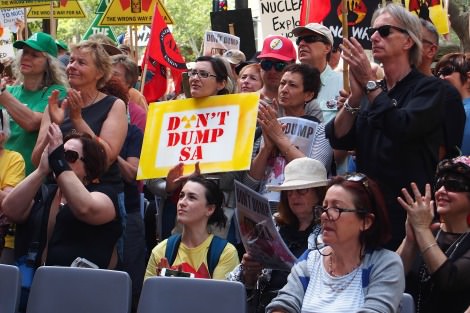
ENVIRONMENT
- Michele Madigan
- 13 February 2017
9 Comments
'It will be your artists: the poets, painters, actors, dancers, musicians, orators - they will be the ones to lead the changes.' It was one of the many international invited guests, a Maori woman speaker, who made this prediction to the huge 40,000 strong crowd that marched to Hyde Park, Sydney, on 26 January 1988. In South Australia almost 30 years later, this prophecy continues to unfold in the high-stakes battle for country that surrounds the proposed nuclear waste dump.
READ MORE 
-
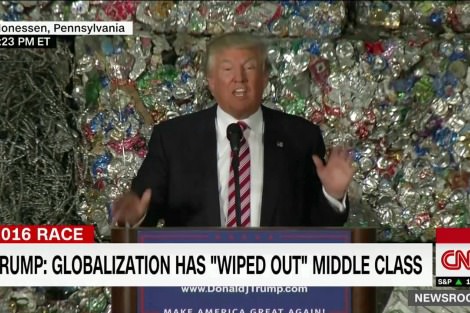
ECONOMICS
- David James
- 07 February 2017
10 Comments
Many defenders of globalisation express frustration at the rise of Trump and what they see as an ignorant and self-defeating backlash against its virtues. But they have no answer to the most pressing question: Is the global system there to serve people, or are people there to serve the global system? They also never address a central contradiction of globalisation: that capital is free to move, but for the most part people are not, unless they belong to the elite ranks.
READ MORE 
-

AUSTRALIA
- Ann Deslandes
- 06 February 2017
7 Comments
The recent viral footage of 'alt-right' spokesperson Richard Spencer taking a punch to the chops caused considerable debate. There is no doubting the moral clarity that non-violent resistance achieved in the civil rights movement led by Martin Luther King and the Indian independence movement led by Mahatma Gandhi, and the real result of justice for African American and Indian people. When it comes to the odd individual act of public pushing and shoving, though, asking 'Is it okay?' is a red herring.
READ MORE 
-
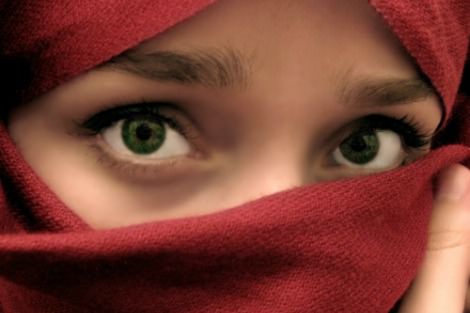
RELIGION
- Irfan Yusuf
- 14 December 2016
2 Comments
Some of my South Asian 'aunties' are very much opposed to wearing any religious head covering. Mum has only recently started wearing a tiny Egyptian number she picked up during her last Haj. Like many South Asians, she has become a bit more religiously observant as she gets older. She grew up in the Indian university town of Aligarh, some 140km South East of Delhi. Aligarh was a very conservative town, and her father, a professor at the local university, was a rather conservative chap.
READ MORE 
-

ARTS AND CULTURE
- Rory Harris
- 28 November 2016
2 Comments
Echuca is a string of hand held families in the sun, their floppy hats nodding over ice-creams smeared ear to ear. In Bendigo we sit on the bed eating treats from along the road. The Age is our tablecloth. The ghosts of parents past, promenade the High Street, they holidayed closer to home and always travelled with a deck of cards and a bottle in the suitcase ... Hills wrap Castlemaine, the trains have stopped running, the fruit and veg is biodynamic and the sky is scattered wool ...
READ MORE 
-
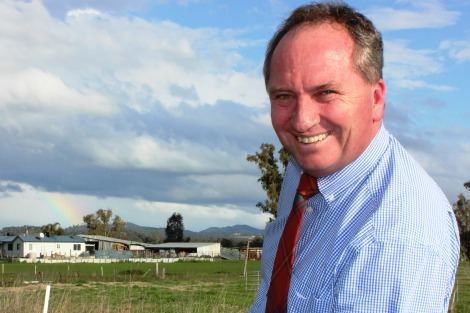
AUSTRALIA
- John Warhurst
- 31 October 2016
13 Comments
The Nationals are the under-rated story within the Turnbull government. From the moment the party negotiated its binding agreement with Malcolm Turnbull, it has stood strong and determined. After about 30 years the Greens are still finding their way and learning their trade. They remain the outsiders looking in, whereas the Nationals are the ultimate insiders. Perhaps the Greens try too hard to be responsible, and would benefit from a dose of some of the larrikinism which the Nationals offer.
READ MORE 
-
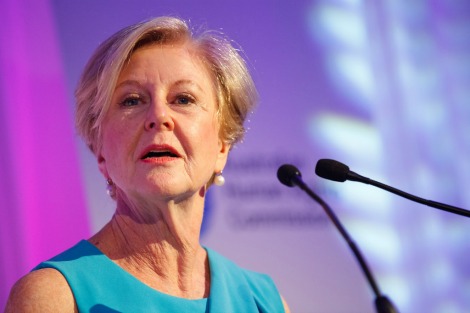
AUSTRALIA
- Moira Rayner
- 25 October 2016
55 Comments
This damnable pursuit of Gillian Triggs must stop at once. Triggs is an outstanding independent statutory office holder, one of the many appointed by governments over decades to remind them of Australia's international human rights obligations and to oversee the functions of laws to mitigate social wrongs such as age, race, disability and sex discrimination in public arenas. But no government likes watchdogs on the moral and legal limits on its power.
READ MORE 
-
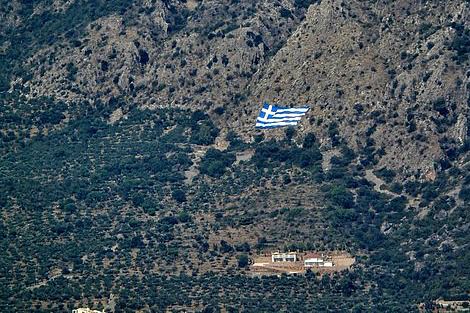
INTERNATIONAL
- Gillian Bouras
- 21 October 2016
8 Comments
Before I turned five, I was in the serried Monday morning ranks of children who had to swear, among other vows, to honour the flag. Years later I watched, shocked, as a Greek friend burst into tears at the sight of the emblematic blue and white stripes at a soccer match: big, strapping Panayiotis sobbed helplessly for quite some minutes. Today the American elections are almost upon us, and Old Glory has naturally been very much in evidence throughout this most gruelling and worrying of campaigns.
READ MORE 
-
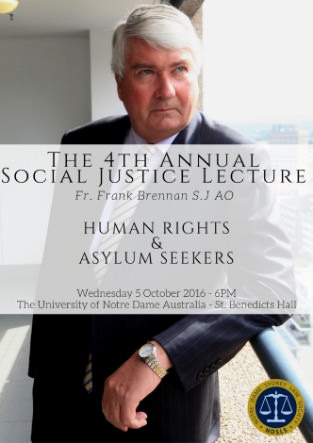
AUSTRALIA
- Frank Brennan
- 06 October 2016
8 Comments
Australia's policy is unique and unrepeatable by other nations because it requires that you be an island nation continent without asylum seekers in direct flight from the countries next door and that you have access to a couple of other neighbouring island nations which are so indigent that they will receive cash payments in exchange for warehousing asylum seekers and proven refugees, perhaps indefinitely. The policy over which Turnbull presides is not world best practice. It's a disgrace.
READ MORE
-

RELIGION
- Frank Brennan
- 23 September 2016
18 Comments
'No good will be served by a royal commission auspiced by the state telling a Church how it judges or complies with its theological doctrines and distinctive moral teachings. By all means, set universal standards of practice expected of all institutions dealing with children, but do not trespass on the holy ground of religious belief and practice.' Fr Frank Brennan SJ addresses the Freedom for Faith Conference in Melbourne, 23 September 2016.
READ MORE
-
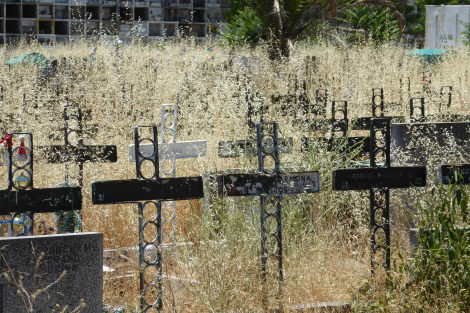
INTERNATIONAL
- Tony Thompson
- 14 September 2016
6 Comments
I don't speak Spanish but I knew I had to try to ask someone. It wasn't an appealing idea. The crowds of people roaming here were the bereaved. They were here to visit their loved ones, not help me tick a box on my tourist adventure. However, I had little choice. I stopped a friendly looking middle aged man. 'Victor Jara,' I said. 'Donde?' He smiled and said a lot of things in Spanish while gesturing in a particular direction. I thanked him and headed the way he had pointed.
READ MORE 
-
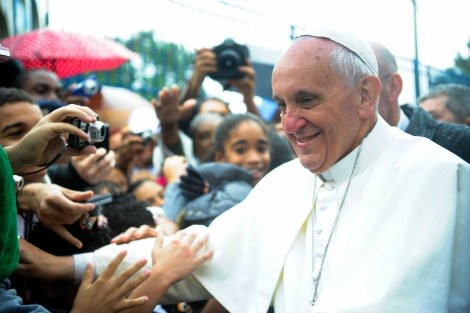
RELIGION
- Andrew Hamilton
- 08 September 2016
7 Comments
Popes are politically significant because they lead a large international church that is present in many nations. The teaching, interests and opinions of popes affect the way bishops and priests act, and so influence Catholic attitudes. More recently, popes have also become celebrities. Their influence on public opinion, in wider society and in the Church, is increasingly personal. As a result the way individual popes understand and express their faith will shape the possibilities for their political influence.
READ MORE 